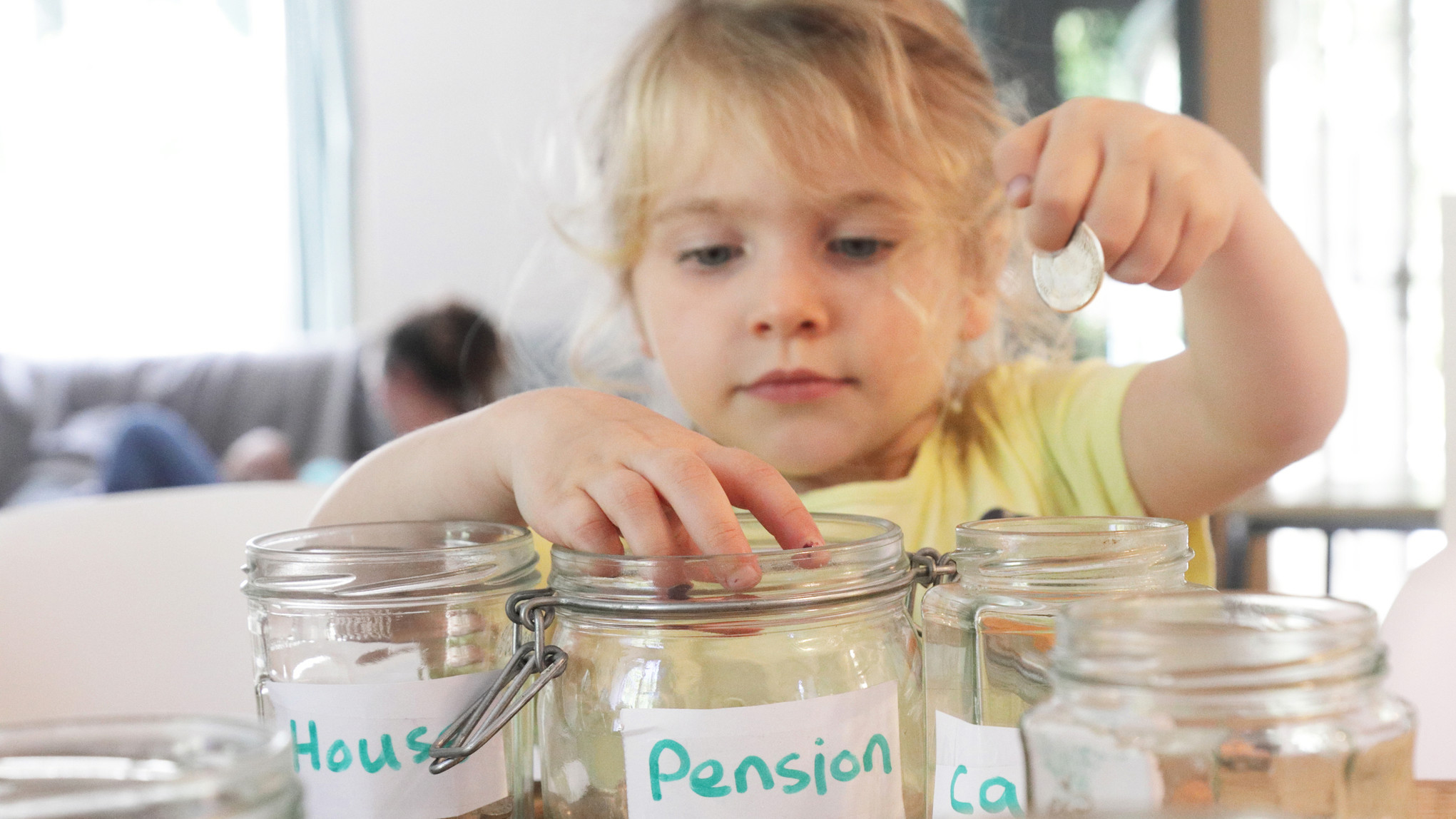Pearler gives kids ‘headstart’ with new investing app where volatility doesn’t perturb investors

Pic: Getty Images
- Pearler launches Pearler Headstart to help parents invest for their kids’ future and improve financial literacy
- Despite market volatility investors are continuing to invest on the Pearler app, albeit less frequently
- US markets proving popular with investors despite uncertainty in world’s largest financial market
Long-term investing platform Pearler has launched a new kids’ investment app, Pearler Headstart, designed for parents to invest for their offspring’s future and help them develop financial skills.
It may seem like a strange time to launch a new investment app amid rising interest rates, ongoing inflation, geo-political uncertainty, major banking collapses and continued market volatility.
But co-founder and CEO Nick Nicolaides said now is actually the ideal time as families around Australia think about their financial wellbeing both in the present and future.
“It just sharpens everyone’s focus on the fact you need to be organised in this day and age and from a generational perspective things aren’t going to be as easy,” he said.
“It’s not to say any generation has had it easy but for young people certainly that is the ultimate manifestation of thinking long-term.”
He said the kids investing app is not necessarily about what is happening in the markets now but more about where life is going, what needs to be done now to ensure they have a happy, flexible and fulfilled life, and a lot of that has to do with money.
“Financial independence – and everyone has a scale of what that means – is an enabler of so many things,” he said.
“Things are doomy and gloomy but I think as a whole people are optimistic about the future and get up everyday and do their thing.
“But we have been forced as people to really think about where we are going and the reality is we have more of a responsibility to plan for the future.”
He said it’s not to say everyone will be in the position to be thinking about the next generation and there are people in real financial stress, but it’s all part of the same social movement.
“Whether you are under stress or feeling okay about money, everyone is thinking about what does the future look like and financial well-being.”
He said financial well-being is one of the main reasons Pearler exists with a recent report showing financial literacy is actually declining in Australia.
The latest edition of the Melbourne Institute’s Household, Income and Labour Dynamics in Australia (HILDA) Survey shows that men, women, and people of all ages scored lower in 2022 than in 2016 in a test that asked five relatively straightforward questions covering numeracy, understanding of inflation, diversification risk and return and “money illusion”.
“We have a great system in Australia where 10.5% of your wage is effortlessly swept in super so we are a country of investors, but without the education to match,” Nicolaides said.
“There are way too many people, especially young people, who aren’t given enough guidance or support. As a result, they’re not thinking about long term financial independence, much less their government mandated retirement savings.
“Pearler Headstart is just meant to give people another level of guidance and support to keep building a nest egg for their child’s future.”
Headstart enables investors to set and track goals whether it be for a child’s education, gap year travel or help with a house deposit.
“It’s a powerful tool for passing on positive money habits, developing financial literacy and financial wellbeing in a family.”
Once the child reaches 18 they can take over management of the account or continue to engage via the adult in their life who established it on their behalf.
Still investing, no rise in rate of sells
Nicolaides said investors on the Pearler website are fairly evenly spread between Gen X and Gen Z with 30-40% having homes. In a positive sign, they are continuing to invest despite market volatility.
“People whether they have a home or not are just feeling less wealthy so they’re still investing and not selling,” he said.
“We haven’t seen any increase in the rate of sells but people are investing less frequently by a factor of a couple of months.”
“You could point to interest rates and high interest savings accounts, costs of living increases or any of these things but whatever it is or a combination, people are just taking things a bit slower but not stopping which is important.”
Nicolaides said investors appear to understand that over the long-term, markets will do what they have always done and rise.
“It’s kind of a new form of FOMO and when the markets were going up everyone wanted to get in. But no one wants to look back and think they missed out of the first two years of a new bull market,” he said.
“So speaking to increased level of financial literacy people might be thinking it might be tough and doesn’t feel good but they can’t sit on the sidelines forever.”
US investing rising
Nicolaides said the Pearler investor community is typically investing in fairly diversified simple things – ETFs, as an example – but there has been interest in US markets.
“Whether that is direct US stocks or Aussie ETFs that provide investors with US exposures,” he said.
“That is interesting as US markets have been sold off more heavily than the Australian indexes but the currency is also an interesting factor there.
“Perhaps that is signifying people are thinking the Aussie market is fairly resilient but the US has further to bounce back maybe.”
Stockhead’s Eddy Sunarto provides a good run-down on how the price of the Aussie dollar impacts investors here.
What goes down must come up
And Nicolaides final words of advice for investors.
“Worry about what you can control,” he said.
“As long as you don’t need to sell your stocks and are investing in the things you understand, it’s hard, but remind yourself that consistency generally pays off.”
Related Topics
UNLOCK INSIGHTS
Discover the untold stories of emerging ASX stocks.
Daily news and expert analysis, it's free to subscribe.
By proceeding, you confirm you understand that we handle personal information in accordance with our Privacy Policy.








